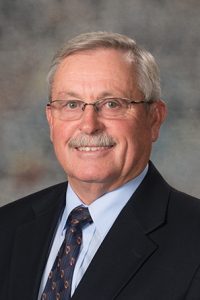Bill would expand Medicaid preferred drug list
Antidepressant, antipsychotic and anticonvulsant medication would be added to the Medicaid Preferred Drug List under a bill considered March 28 by the Health and Human Services Committee.

The list was established by the Legislature in 2008 and contains several classes of drugs administered by a committee which, in conjunction with the state Department of Health and Human Services, determines the best and most cost-effective medications on the market for inclusion.
Bayard Sen. Steve Erdman, sponsor of LB245, said the bill would save the state $2.3 million by allowing generic versions of medications in the three categories to be included on the list. The bill would not prevent a doctor from prescribing a brand-name medication, he said.
“The [federal] Office of Generic Drugs follows a rigorous review to make sure they do the following: have the same active ingredient, have the same strength and use the same dosage,” Erdman said.
Carisa Schweitzer Masek, pharmacy director for the DHHS Division of Medicaid and Long-Term Care, testified in support of the bill. She said that since the list’s creation, many generic drugs in the three classes covered under LB245 have become available, and now the majority of patients begin their treatment with a generic medication.
Schweitzer Masek said that one-third of the state’s Medicaid drug expenses are for medications in these three classes.
“[The bill] would lessen the administrative burden on providers, reduce burdens on recipients, not negatively affect care and protect taxpayers,” she said.
Psychiatrist Beth Ann Brooks testified in opposition to LB245 on behalf of the Nebraska Psychiatric Association and several other health provider organizations, saying it could decrease the quality of patient care. It is impossible to predict how a patient will react to a particular antipsychotic drug, she said, and cost considerations should not be a primary prescribing factor.
“When psychiatric practitioners are forced into a normal formulary, less than optimal care can result in increased costs incurred from higher levels of care, including hospitalizations,” Brooks said.
Bill Mueller also testified against LB245 on behalf of the Pharmaceutical Research and Manufacturers of America. He said drugs in the three categories should not be on the preferred drug list and doctors should have complete control over which medications they are prescribing.
“To say that it makes it easier for providers, I don’t think is accurate,” Mueller said.
The committee took no immediate action on the bill.


